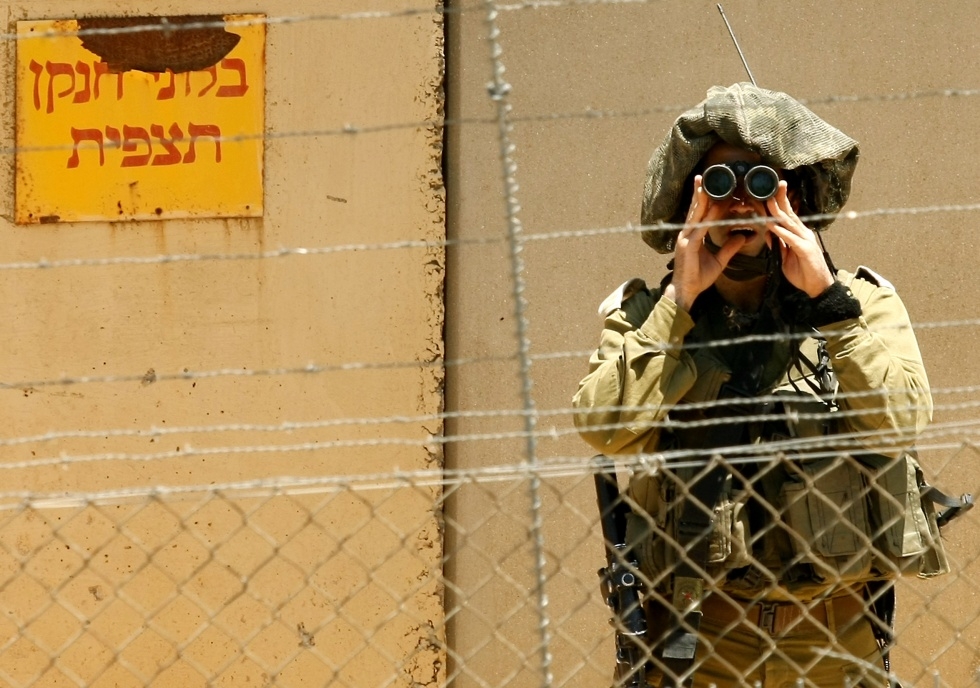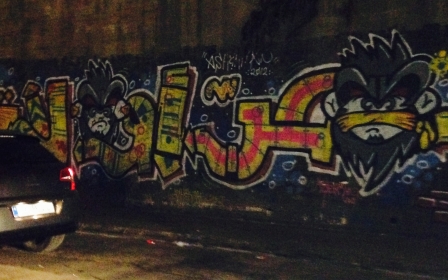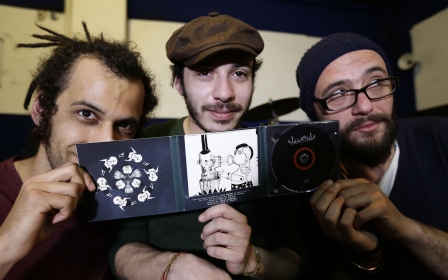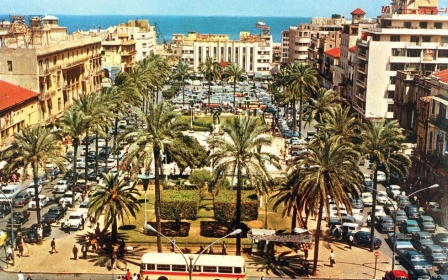15 years of Lebanese ‘liberation’?

The 25th of May was a big day in Lebanon. On the one hand, it was the 15th anniversary of Israel’s withdrawal from the southern section of the country following a brutal 22-year occupation.
On the other, it was the first anniversary of Lebanon’s lack of a president - a post that shows no signs of being filled any time soon despite repeated parliamentary pseudo-efforts to elect one.
Though the liberation of the south and the current presidential void may seem to have little in common, there is a link of sorts. After all, the Lebanese state’s perennial inability to act as such goes a long way in explaining the circumstances of the Israeli withdrawal, which came about via a concerted campaign by Hezbollah and other non-state actors rather than through any government-sponsored effort.
But 15 years later, just how liberated is Lebanon?
The gift that keeps on giving
Let’s start at the ground level, where Israel’s occupation of the south has been superseded by another occupation - this one involving a proxy army of unexploded cluster bombs.
During its bloody 34-day assault on Lebanon in 2006, the Israeli military fired an estimated four million cluster bombs at its former south Lebanese stomping grounds, most of them in the three days prior to the ceasefire. According to UN calculations, around 40 percent failed to explode on impact.
The sadistic beauty of cluster bombs lies in the fact that they continue to kill and maim of their own accord; they’re the gift that keeps on giving. Just ask Vietnam, Cambodia and Laos, where unexploded American munitions are helping keep the population in check four decades after their dispersal.
The situation in Lebanon is such that, even now, army checkpoints distribute activity books for children containing crosswords, mazes and other games to acquaint them with the potentially explosive dangers of items that often resemble toys. And yet the casualties accrue.
UNIFIL forever
In addition to cluster bombs, south Lebanon also has to contend with another lingering presence: the United Nations Interim Force in Lebanon (UNIFIL), from which the term “interim” could easily be expunged. The force has been in place since 1978.
Presently boasting more than 10,000 international troops, UNIFIL has taken over various swathes of Lebanese territory, and its highly electrified headquarters in the border town of Naqoura stands in stark contrast to surrounding electricity-deprived areas. The force’s annual budget now verges on $510mn.
But despite its excessive arsenal of military hardware - tanks, warships, obscure vehicles that appear more suitable for extraterrestrial settings - UNIFIL won’t lift a finger in the face of Israeli aggression against Lebanon (even when, as sometimes happens, the targets of incoming Israeli fire are UNIFIL personnel themselves).
In a country in which the poverty rate exceeds 60 percent in certain places and infrastructure suffers even without the help of Israeli bombardments, it seems that the gobs of money spent to sustain the UN presence could perhaps be put to better overall use.
Ditto for the Special Tribunal for Lebanon (STL), the UN-backed outfit set up in The Hague to try suspects in the 2005 assassination of multibillionaire ex-prime minister Rafik Hariri.
The product of an overlapping international-Lebanese sectarian agenda to discredit Hezbollah, the court has conspicuously exempted Israel from suspicion despite that country’s established patterns of behaviour in Lebanon and despite the various benefits it derived from said assassination, including the ensuing termination of the Syrian occupation of Lebanon.
The STL has reportedly cost upwards of half a billion dollars thus far. According to the tribunal’s website, Lebanon foots approximately half the bill.
Sectarian design
In his book Beware of Small States: Lebanon, Battleground of the Middle East, historian David Hirst describes the diminutive nation as “the sectarian state par excellence” owing to its myriad religious communities and the official division of political power and administrative posts along confessional lines.
Writes Hirst: “Lebanon, it seems, was almost designed to be the everlasting battleground for others’ political, strategic and ideological conflicts, conflicts which sometimes escalate into their proxy wars.”
So while Lebanon may be 15 years into freedom from Israeli occupation - and 10 years sans Sister Syria - this hardly translates into liberation from its chronic existence as a clashing point for foreign powers.
And the system of political sectarianism that invites outside meddling constitutes an affront to freedom in Lebanon in other ways, as well. For one thing, you hardly qualify as a free human being when your country doesn’t permit you a non-religious identity. (If you happen to be a Palestinian or Syrian refugee or a migrant worker in Lebanon, you can pretty much forget qualifying as a human being altogether.)
Of course, the forcible divisions between inhabitants of Lebanese territory works out just dandy for the country’s crop of sectarian warlords, who’d be out of a job if everyone got along.
The SkyBar solution
Following a recent fire at Beirut’s pretentious SkyBar, popular Lebanese blogger Gino Raidy took the opportunity to propose nightlife as an antidote to sectarianism and other social ills. “Clubs are the only places in this country where people’s names, sects, genders, race, sexuality, etc. doesn’t matter,” he wrote in his eulogy for the temporarily out-of-service establishment.
Raidy went on to detail the additional merits of the clubbing crowd: “I look around, and I see people from all over the country, named after saints and imams, all collectively not giving a f**k about everything plaguing the rest of the population.”
Never mind that the vast majority of Lebanese are too poor to engage in post-sectarian exercises in not giving a f**k at high-end nightclubs, where your religion may not matter but your socioeconomic status sure as hell does.
If Lebanon can’t be liberated from its elite, maybe the elite could at least be liberated from a pathological pride in superficiality.
Fifteen years after liberation, a whole lot more liberating is in order.
- Belen Fernandez is the author of The Imperial Messenger: Thomas Friedman at Work, published by Verso. She is a contributing editor at Jacobin magazine.
The views expressed in this article belong to the author and do not necessarily reflect the editorial policy of Middle East Eye.
Photo: An Israeli soldier looks through his binoculars from the town of Metula, on the Lebanese border, on 11 May 2012 (AFP)
New MEE newsletter: Jerusalem Dispatch
Sign up to get the latest insights and analysis on Israel-Palestine, alongside Turkey Unpacked and other MEE newsletters
Middle East Eye delivers independent and unrivalled coverage and analysis of the Middle East, North Africa and beyond. To learn more about republishing this content and the associated fees, please fill out this form. More about MEE can be found here.





